A Story for Christmas
During December we’re featuring one short story per day from my latest book, Christmas Jelly. Today’s story is my favourite from the thirty-two stories.* Enjoy!
Christmas Jelly contains thirty-two chapters– 0ne for each day in December plus January 1.
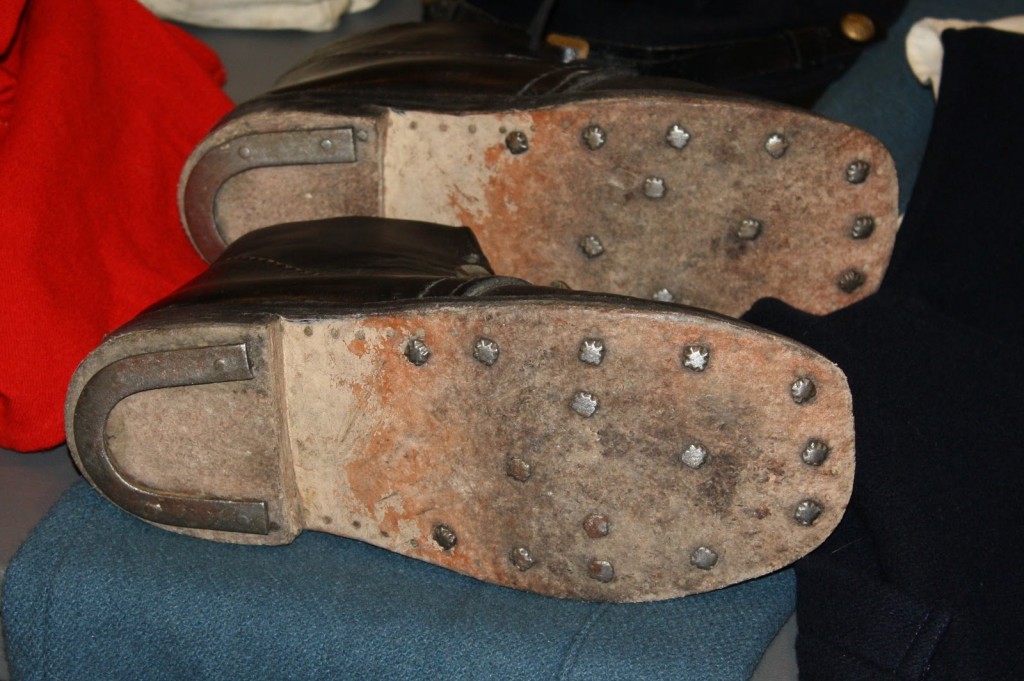
MY GRANDPAS’ BOOTS
CURT ILES
My name is Abe and this is the story of these scuffed boots I wear proudly. These boots have a good story to tell. These boots are six years older than me, and I’m almost seventy. Their history goes back to my hometown of Alexandria, Louisiana and the years after the Civil War. The retreating Union Army smoldering ruins in the spring of 1864.
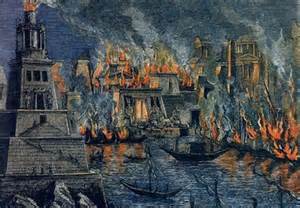
My father was seven years old and remembered the day when the retreating Union Army burned the city. Citizens fled to the Red River levee to escape the flames.
My grandfather, Abram B. Terry, wasn’t there on the day of the fire. He was in the Confederate Army and a prisoner of war up North.
A year after the fire, Grandpa, whom everyone called Pops, limped home from the prison camp and found his hometown destroyed. He’d lost his left leg and replaced it with a stout dogwood crutch, and a heart that was harder than the hickory peg leg he now wore.
The years after the war, known as Reconstruction, were hard on everyone in the Red River cotton country.
In the year 1882, seventeen years after the end of the war, Pops and my dad, who was now twenty-three and still single, opened a sawmill on Bayou Rapides. Money was still tight and as Christmas approached, no one expected gifts.
A string of events occurred in the in the cold weeks before Christmas changed everything about Pops and our family tree. At the same time as my family opened their sawmill, several new families arrived in Alexandria. Most of the men were former Union soldiers who’d come South to make money selling cotton to the New England textile markets. Pops disdainfully called them ‘Carpetbaggers’ and made my father promise to have nothing to do with them.
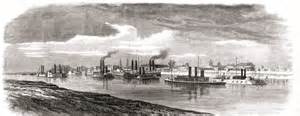
On this fateful day in December 1882, Pops and my daddy were walking along the levee on their way to the bank. Pop stopped when saw a bearded man wearing a faded Union soldier greatcoat. “Hey Bluecoat,” Pop said, “Have you come back to see if there’s anything you didn’t burn the first time?””
The man, who was sitting at a checkerboard balanced on a keg, looked up with a disarming smile. “I don’t want to burn nothing. I might catch fire, too.”He lifted his right pants leg, revealing a wooden peg.
Pops squinted. “Where’d you lose that?”
“One of your snipers got it on the last day at Vicksburg. I was the final casualty. ”
Pops leaned on his crutch revealing his own wooden leg. “Lost mine in ‘Pennsylvania.“He hobbled closer.“Bluecoat, how far is your’s gone?”
“To the hip.”
Pops grimaced. “I guess I ought to be thankful mine’s just below the knee.”
“Mine started below the knee too, but Ol’ Sawbones just kept cutting.” Bluecoat winked.“Told him I’d shoot him if he went any higher.”
“Bluecoat, you lost your right leg,” Pops said.
The man moved his checkerboard. “And I see you left your left one somewhere up north, Reb.”
“Yep, they said they buried it in a stump hole at Gettysburg. Pickett’s Charge. July 3rd, 1863.”
Bluecoat grinned. “I guess we’re even then.” He scratched his long beard. “July 3rd. Was that a Friday?”
“It was.”Pops stared down the street “A Friday I won’t forget.”
“Friday, July 3rd,” Bluecoat said, “Same day I lost mine, if I remember—“
Pops interrupted him. “I was crawling away from the stone wall when they captured me and sent me to one of y’all’s prison camps near Elmira, New York. That’s where I cooled my heels—or rather heel—for the rest of the dang war. “
Bluecoat put his hand out. “Like I said, we’re even.”
Pops’ face reddened “I lost a lot more than a leg up there.”
“I’m sure you did.”
Pops placed his right foot beside the Yankee’s left one “What size do you wear?”
“9-E.”
“Me, too.”
Bluecoat extended his hand again. “My name’s Hiram Plott. Just arrived here from Illinois with my wife and four daughters.”
Pops studied the open palm. “I don’t shake hands with the enemy.”
Bluecoat shrugged “No hard feelings. It’s over on my end.”
Pops turned away and spat. “It won’t ever be over on mine.” He grabbed me and said, “Come on, Son, we got work to do.”
I figured that exchange ended any chance for friendship between the two one-legged Civil War veterans. But in the coming weeks, as Pops made his bank visits, he’d faithfully stop by and harass the Bluecoat Hiram Plott at his makeshift whiskey barrel office on the levee.
* * *
My father remembered Christmas Eve of ‘82 as unusually cold for Louisiana. With the hard times, he didn’t expect any presents. He didn’t know how his mother—my grandmother—did it, but she scraped up enough money to buy a Christmas present for her husband, Pops.
She handed him a box and he opened it to find a new pair of riding boots to replace the patched and re-soled one he’d been wearing since the war. When Pops held up the boots, he began crying. “How’d you afford these?”
“Oh, I did some horse trading.” My father knew the truth; his mother had sold off some of the family heirloom silverware to buy those boots.
Slipping the left boot on, Pops said, “Fits perfect.” Glancing down at the spare right boot, he tapped his wooden leg. “I‘ll keep that one in case my hickory stump sprouts a foot.”
My father said those new boots brought about a real change in Pops. Later that afternoon, he grabbed my father, “Son, let’s go downtown.” On their two-mile walk, Pops, carrying a tote sack over his shoulder, kept looking down at his new boot. “I can’t believe Elsie got me a new boot.”.
In spite of the cold, Bluecoat Hiram Plott was at his usual spot, drinking coffee and staring across the checkerboard and the empty chair in front of it.
Pops unshouldered his sack, “Got something for you, Bluecoat.”
Plott glanced up as he moved a red checker. “Crown me.”
“Who are you playing?” Pops said as he pulled a new leather boot out of the sack, tossing it against the barrel and scattering the checkers. “See’uns, I can’t use the right one, thought you might could.”
Plott picked up the boot “9-E huh?”
“Yep.”
He slipped off his own muddy boot and replaced it with the new one. “Fits perfect. That’s right nice of you.”
Pops nodded at his own matching boot. “Christmas gift from the wife.”
Hiram Plott extended his hand “Tell her I appreciate it.”
This time Pops shook his hand. “It’s from me, but you’re welcome.”
Plott motioned to the empty chair. “Let me buy you a cup of coffee, Reb.”
Pops hobbled over. “You like playing checkers?”
“Like the air I breathe.”
Pops moved a black checker. “Loser pays for the next cup of coffee.”
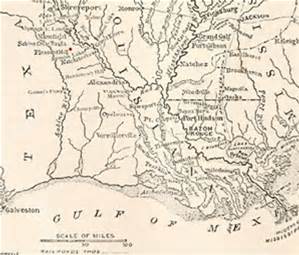
On that Christmas Eve in 1882, the two veterans began their weekly Friday checker match that continued until the first one died in 1921. They never called each other by their given names: it was always ‘Bluecoat’ and “Reb.”
They shared boots for the remainder of their lives, but that’s not all they shared. Eventually, they shared grandchildren. My father met Hiram Plott’s oldest daughter, Leona, and as you can guess, Bluecoat’s daughter and Reb’s son fell in love.
They’re my mother and father. The two checker players were my two grandpas—Abram Terry and Hiram Plott. To me, they were Pops and Gramps.
I’m their oldest grandchild, born three years after that first checker game.
I sat with them on many future Fridays and learned a great deal. They taught me much more than defending against double jumps and protecting your corner. I learned the valuable truth that two men with opposite views and backgrounds can find friendship if they have at least one thing in common.
In this case, A boot for the left and a boot for the right.
My Grandpas’ boots.
Copyright 2016 Creekbank Stories and Curt Iles
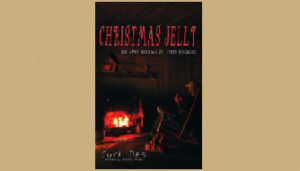
 Creekbank Stories Curt Iles, Storyteller
Creekbank Stories Curt Iles, Storyteller
